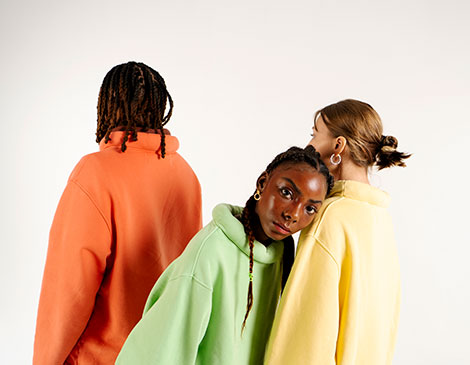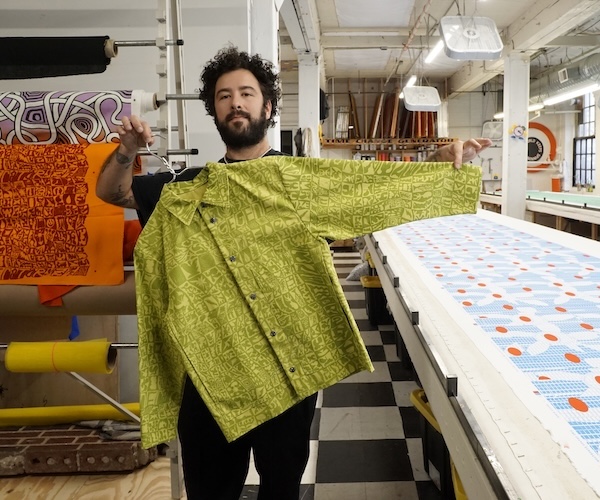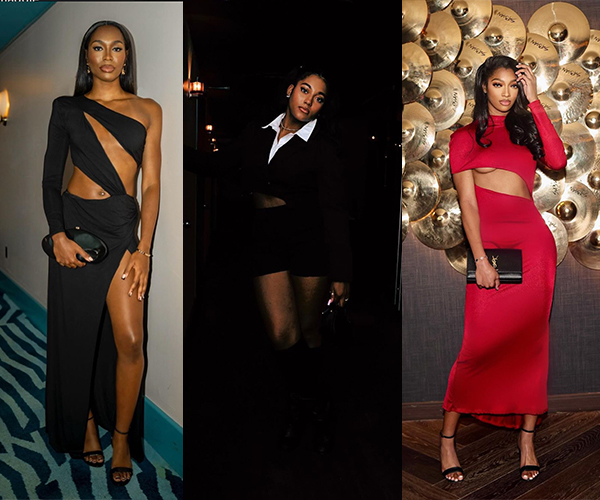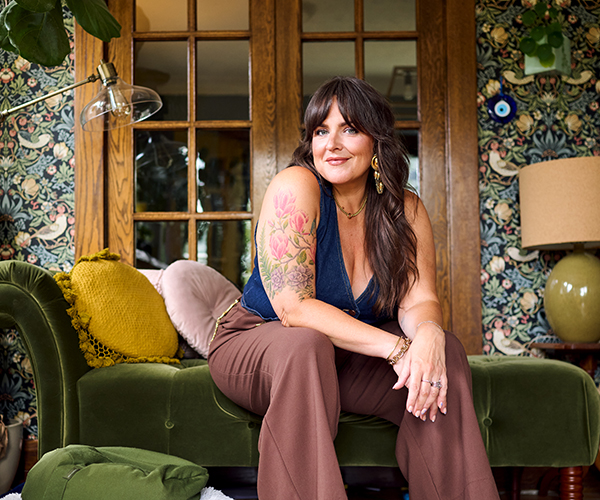Clothes come in all shapes, sizes, colors and materials; from wools and nylon to sequins and, with Aidan Meany splashing onto the fashion scene in 2021, recycled water bottles.
“What’s really exciting about that and what makes it different is there’s nothing in it other than water bottles, but we can set it up on a circular knitting machine that is normally used for cotton,” Meany says. “There’s actually a noticeable knit to it. You don’t really get that with materials other than cotton, so we’re able to replicate that.”
The patent-pending textile design as well as the innovative and sustainable fashion practices done at Found Surface comes from the mind of the recent Syracuse University graduate who, at only 21, is making his mark on the industry in a big way.
Meany got his start in the Cleveland area. He was born and raised in Lakewood and attended high school at St. Ignatius, where he was permitted to put on a fashion show each year.
“After my grandmother taught me to sew and I started to pick it up and run with it, my freshman year at Ignatius I went to them and said, ‘we do an art show every year, but if there’s a cool way I can showcase this, I’d love to do that,’ he says. “They let me do a show every year and that’s how I got my craft down.”
From there out, he knew he had found his calling. Now, he has brought the business back to his roots.
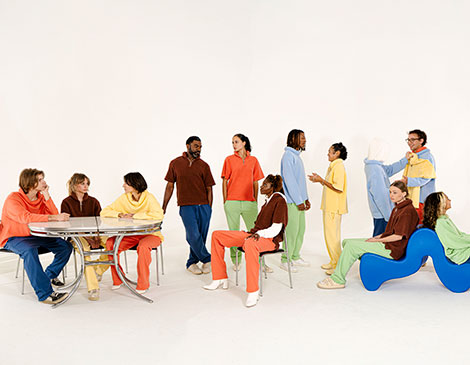
The home-grown fashion aspect happened when Meany realized that Cleveland is exactly where he wanted to be. While most designers aim for New York and Los Angeles, he knew he could help in a place that once was a staple in the garment industry.
“The garment hub we used to be here kind of struck a chord and I saw a huge opportunity to be the one who brings that back,” says Meany. “I feel like a lot of what makes us unique isn’t necessarily flash logos or campaigns. I feel like we’re solving a bipartisan problem and we want to make sure that is communicated clearly.”
The company doesn’t just come from a place of interest in fashion, but also a passion for improving the environment, starting with the recycling scene right here in The Land.
Knowing that the program in Cleveland has in the past left something to be desired and knowing that Gen Z’ers like him give ample consideration to their environment, he knows that he is just the type of person who can make an impact.
“Gen Z consumers care the most about where their clothes are coming from and what’s going into it,” Meany says. “I’m just of the internet generation that has had all the information at their fingertips, and we can see just how bad stuff is. And so I’ve always thought that if I am going to sell products, I should make sure I’m doing that as responsibly as possible.”
To Meany, it is as simple as that. He believes taking care of the Earth is not just something for the fashion industry to pay attention to (though fast fashion has been making headlines due to its negative environmental impacts) but for everyone to have a hand in.
“It’s like basic kindergarten etiquette; you clean up your mess when you make a mess,” he says. “Watch what you’re doing — see who it’s affecting.”
It’s more than just textiles made from recyclables though (which is only one type of clothing made by Found Surface), the company has also found a way to nearly zero out its carbon footprint in the shipping process of its finished products in zero-waste packaging.
“There’s no plastic, there’s nothing that goes in the garbage, it’s literally a tote bag in a box,” Meany says. “The box is 100% recycled paper, we designed it so there isn’t even tape needed on the box. Then your product comes in a tote bag in the box and the tote bag is made of all the waste generated in our textile milling process.”
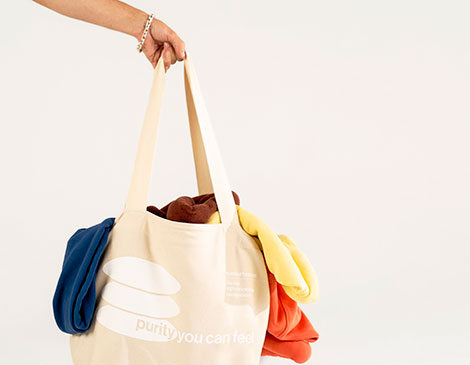
In addition, Meany mentions the tags are made of biodegradable hemp cord and recyclable alumni pins to attach them to the shirt, ensuring that everything that comes in the package can be recycled for something else.
The carbon footprint helps to be eliminated with what the company calls “carbon neutral shipping through offsetting”
“Every time a customer purchases an order, we work with a partner that identifies renewable energy sources as close to where the order was placed — things like wind farms, solar farms, sustainable animal farming — and they say ‘to offset the transportation to get this package from headquarters to the customer will emit this much carbon and to offset that you need to donate this much to [sustainable causes].’” Meany explains. “That’s out of our pocket, not our customers.”
Not only does being based in Cleveland promote sustainability and revitalize the fashion industry, but at his core, Meany knows it is about giving back to Clevelanders.
“We’re bringing good, quality manufacturing back to the city and growing the economy and building a design hub that doesn’t exist here,” he says. “We can sit and talk to real people and real businesses and grow something. There’s more opportunity here.

